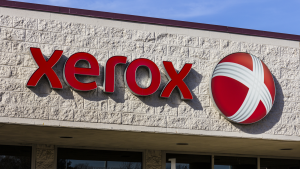3 Tech Stocks I Wouldn’t Touch With a 10-Foot Pole
The Federal Reserve appears set to pivot toward lower interest rates in 2024. With inflation coming down and financial conditions looking more measured, it could be time for easier monetary policy.
That is great news for investments like tech stocks, which have a significant correlation to interest rates. However, investors may be getting ahead of themselves with this move. Lower interest rates alone won’t salvage the fortunes of all companies. For these three ailing tech stocks to sell, no amount of easier monetary policy will change their grim fundamentals.
Canoo (GOEV)

Canoo (NASDAQ:GOEV) is one of the many electric vehicle (EV) SPACs that lost its charge after shares started trading. The firm initially planned to have monetization of its intellectual property both by licensing to other EV companies and manufacturing its own products.
That failed almost immediately; Canoo’s licensing strategy never gained traction, and cost overruns doomed the proprietary side of operations. The company is now trying to pivot, but it appears to be too little too late.
Traders might look at GOEV’s 25-cent stock price and think it must be getting cheap. Isn’t it worth a gamble at such a low starting price? But that’s an illusion.
Canoo has engaged in an absurd about of stock dilution over the years and now has more than 750 million shares of stock outstanding. As a result, it still has a market cap of just over $200 million; that’s a huge number for a business with a long track record of failure and no apparent viable path forward.
Xerox (XRX)

Printing and document management company Xerox (NYSE:XRX) has surprisingly turned into a hot stock. XRX stock is up roughly 28% over the past month, seemingly the beneficiary of a short squeeze.
The management team should take some credit. Xerox is still hanging on and has a profitable business in the printing space. That’s better than can be said for, say, Eastman Kodak (NYSE:KODK).
However, don’t mistake surviving for thriving. Xerox’s revenues slumped from $9.7 billion in 2018 to $7.1 billion in 2022. Analysts see that slipping well under $7 billion next year.
The company is struggling to adapt to customers’ more digitalized workflows — a trend that has only accelerated with the rise of remote work. Investors should take advantage of the recent squeeze in XRX stock to cash out before its fortunes slide any further.
Sunrun (RUN)

Sunrun (NASDAQ:RUN) is a solar technology company. It offers a broad product line-up, delivering both solar power generation and storage solutions through direct-to-consumer channels and third-party affiliates.
RUN stock used to trade at a high valuation as investors seemingly thought Sunrun would inevitably grow as the total solar marketplace expanded. But 2023 brought a massive correction for solar stocks and renewables more generally. Subsidies have started to dry up, and the government has launched inquiries into the solar rooftop installers specifically.
Now Sunrun’s investors must face a grim reality: The company has huge operating losses and a shaky balance sheet.
Sunrun lost more than $1 billion over the past 12 months. The company now pays more than $500 million annually in interest, so the company probably can’t shrink its way to profitability given the massive amount of money it owes its creditors. RUN stock rallied recently thanks to an apparent short squeeze. But traders should cash out now before the share price collapses in 2024.
On the date of publication, Ian Bezek did not hold (either directly or indirectly) any positions in the securities mentioned in this article. The opinions expressed in this article are those of the writer, subject to the InvestorPlace.com Publishing Guidelines.

